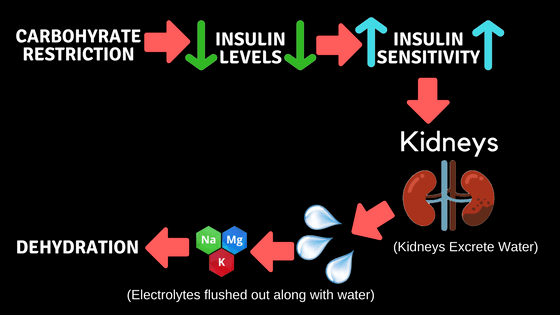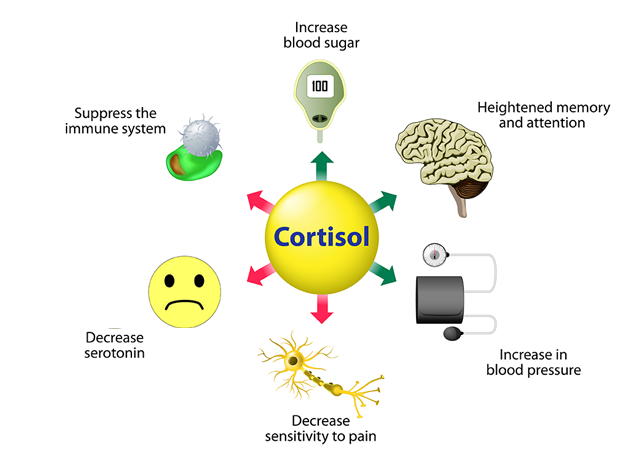Hello, I have been doing keto, or at least low carb now for 6 months. I’ve had very good results and I feel very good most of the time. I’ve experienced the keto flu a couple of times (when I first started and when I have been knocked out of ketosis - my body seems to be carb dependent - for now) One thing I haven’t been able to fix is having a loud heart pump. It’s most noticeable when I go to bed, it’s so heavy it can often keep me awake. Has anyone had issues with this also? I’ve been to the doctors and everything was good. My resting heart rate is good. I do running as a sport, 3 - 4 sessions a week and I also train weights in the gym 2 times a week. I also have a physical job I do 3 days a week. Any help would be much appreciated so thanks in advance!
Heavy/Loud Heart Pump
Are you taking supplements? I found I had this problem when I was supplementing with potassium in the beginning. I stopped and it also stopped. I was also probably not as hydrated as I should have been. Something to keep in mind. Best wishes figuring it out.
Yes, I have an electrolyte drink that I use when I’m starting to feel a bit of the brain fog. I don’t supplement potassium but I was thinking of trying this as I read that a loud heart pump can be caused my low potassium levels. I do have bone broth daily and also essential amino acids.
I do use a fair bit of pink salt during the day on food and in my water. But I have not tried it directly like this no…
Ive only had this couple times and it was during adaptation phase, extra salt and water always fixed it for me, it should go away in 10-15mins if thats the cause of it. If u have stiff neck / headache it might be dehydration too.
Dehydration is always a problem with me and I take magnesium supplements. I’ve also tried selenium and that helps me a lot with heart rhythms. But lack of fluids can affect your heart, not enough volume to efficiently move blood around.
I had this problem for a few weeks and I started taking magnesium citrate which helped. I started eating 3-4 avocados a week and stopped with the supplements so I’m pretty sure more magnesium and potassium helped fix the problem. If I have a choice to supplement or get the required minerals from food, I will pick food every time.
I have experienced this also many times (I experiment a lot) including the symptoms below; carbohydrate or glucose withdrawal. Can happen when fasting also.
I have a little theory about this:
One thing that will cause this, is if you spike your insulin too fast which will also cause your heart to palpitate because it will choose the glucose from carbohydrates over the fatty acids the heart was using to burn directly as fuel; from suddenly eating a bunch of carbohydrates (if true?) or stress[2][3] (mind is racing while trying to sleep about stressors in your life?) and the switching back and forth between high fat, high carb and low carb based on your summary below? HPA-Axis
It can also be a combination of high adrenaline activity (exercise) dehydration, depletion of electrolytes (sodium potassium and magnesium) and social stress. Every time you adapt back into ketosis food shortage is high (carb restriction) so emergency mode kicks in and your on high alert adrenaline, cortisol, epinephrine are increased?

[1] ”…Cortisol is the main stress hormone that raises blood sugar, increases heart rate, elevates blood pressure, and promotes mental sharpness. Things that raise cortisol are intense physical exercise, caffeine, sleep deprivation, lack of electrolytes, mental turmoil, anxiety, being angry, screaming at others, feeling rushed, and running out of time. …More

[2] What are the effects of epinephrine on insulin? Insulin levels fall, glucagon and epinephrine (adrenaline) levels rise and more glucose is released from the liver. At the same time, growth hormone and cortisol levels rise, which causes body tissues (muscle and fat) to be less sensitive to insulin. As a result, more glucose is available in the blood stream.…More
[3] How does adrenaline affect blood glucose levels? Your body releases stress hormones like adrenaline and cortisol that do not get along with blood sugar at all. Stupidly, stressful situations often occur unexpectedly, and it’s hard to react to the blood sugar spike fast enough. … Medications: Certain medications can increase blood sugar. …More
[5] Adrenal Health and Keto: How to Support the Stress Response
Ok thanks, Carl, I do eat a few avos a week but I’m going to get some supplements tonight. I’ll increase them to start with and see if that has any affect. If so I agree and I’ll aim for foods.
Hi Bunny, very comprehensive so thank you for that. I’ll need some time to go through all of that so I understand it. Yes I agree I will have multiple factors possibly but I don’t think to many. I see that a lot of endurance athletes do increase the carb intake more than most. Especially after long training sessions. I wonder if this could be part of it.
Thank you everyone for the advise. I think I have gotten on top of the problem. I believe it is potassium. I do eat a lot of leafy greens for lunch & dinner but I found a good daily limit was around 4 - 5000mg per day. And as I run most days I think I might need more than this so I’m trying a potassium supplement which has helped.
